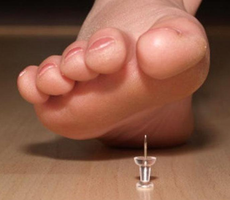- LOCATIONS
- SELF CARE
-
FAQs
- ## TopTenTips ##
- Group A Streptococcus
- AccuRx
- Blood Tests
- Book An Appointment
- Fees for non-NHS work
- LGBT+
- New Patients
- Online Access (NHS App)
- Referrals
- Register with us
- Repeat Medication
- Safe Surgery
- Saturday Morning Surgery
- Sicknotes
- Suspected Cancer
- Test results
- Video Consultations
- When we're closed
- SERVICES
- CONDITIONS
- STAFF
- COMMUNITY
- CONTACT
Are your living with Chronic Pain?
We all have ‘everyday pain’ like headaches, pain from cuts and bruises and muscle pain after exercise. These pains don’t last long and often don’t need treatment.
We know that how we feel pain is affected by how we are feeling generally. It can be made worse by our past experience of pain and if we are concerned about the cause of the pain. Also, unpleasant thoughts, feelings and memories (even those not to do with pain) can affect how we feel pain. If we are anxious, depressed or feeling emotional it can make the pain feel worse and make it more difficult to treat.
We know that how we feel pain is affected by how we are feeling generally. It can be made worse by our past experience of pain and if we are concerned about the cause of the pain. Also, unpleasant thoughts, feelings and memories (even those not to do with pain) can affect how we feel pain. If we are anxious, depressed or feeling emotional it can make the pain feel worse and make it more difficult to treat.
|
Chronic pain may begin with an injury but the pain doesn’t get better as expected. Common types of chronic pain include low back pain, pain related to arthritis and pain due to injury of a nerve. Chronic pain may not be a sign of ongoing injury or damage but may be to do with the way the nerve feel pain.
Doctors talk about acute and chronic pain. Acute Pain is pain that follows an obvious injury like a broken bone or an operation and only lasts a short time. Chronic pain is pain that goes on for months. Both types of pain can vary from mild to severe, the difference is only how long the pain lasts. |
Chronic pain can result in a person feeling low in mood and irritable. They may have poor sleep and find it difficult to move around. It is difficult to treat and most types of treatment only help about 1 in 3 people. The aim of the treatment is to help you manage your pain and improve what you can do. Unfortunately painkillers, even strong ones like codeine and morphine are not very effective for chronic pain. Often other non-medicine treatments like pain management courses, cognitive behaviour therapy (CBT), mindfulness and TENS machines can be more helpful.
Keeping active does not cause further injury and is safe. As the pain treatments are not good at getting rid of the pain completely, the aim is to help you function as well as possible.
Medicines for long term pain may reduce the pain but evidence shows the reduction is only about 30%. If pain killers are combined with the non medicine techniques for managing pain, like increased exercise and taking part in satisfying and enjoyable things such as work, study or social activities they work better. It is also helpful to set goals to help improve your life.
Keeping active does not cause further injury and is safe. As the pain treatments are not good at getting rid of the pain completely, the aim is to help you function as well as possible.
Medicines for long term pain may reduce the pain but evidence shows the reduction is only about 30%. If pain killers are combined with the non medicine techniques for managing pain, like increased exercise and taking part in satisfying and enjoyable things such as work, study or social activities they work better. It is also helpful to set goals to help improve your life.
|
Sometimes strong pain killers, such as opioids, may be started when you first have an injury when it is still hoped that your pain will be short lived. If you pain goes on for longer than three months it is important to discuss with your doctor how your pain killers are working. Your doctor may suggest that you slowly reduce and stop your pain killers even when you are still suffering from pain. This is because if they are not giving you much benefit the risks of long term use ma be greater than the benefit that you are getting. The body gets used to painkillers, especially opioids like codeine and morphine, and so higher doses are needed to get the same effect. However high doses of opioids for long periods of time can have a number of side effects like constipation, itching, weight gain, lack of sex drive, reduced fertility, difficulty breathing at night and increased levels of pain.
|
Many people find they can slowly reduce their painkillers without their pain getting any worse. They also then have less side effects which can help people enjoy life more.
The pain clinic runs pain management courses. There are also a number of other services available locally to help people living with chronic pain.
Bristol Wellbeing service offer cognitive behaviour therapy, The Rock runs gentle exercise classes. You can also ask to be referred to the gym for exercise at Henbury. Expert instructors will assess you and develop an exercise programme that is right for your level of pain or disability. You can be referred to our community web advisor who will look at tall the different activities available locally, including art and social activities to help you choose which you think may be most help to you.
When you next come for your medication review with your doctor or have a discussion with your local pharmacist, it is a useful time to see if your medication is still likely to be helping. It may be a good time to look at new ways to deal with your pain.
The pain clinic runs pain management courses. There are also a number of other services available locally to help people living with chronic pain.
Bristol Wellbeing service offer cognitive behaviour therapy, The Rock runs gentle exercise classes. You can also ask to be referred to the gym for exercise at Henbury. Expert instructors will assess you and develop an exercise programme that is right for your level of pain or disability. You can be referred to our community web advisor who will look at tall the different activities available locally, including art and social activities to help you choose which you think may be most help to you.
When you next come for your medication review with your doctor or have a discussion with your local pharmacist, it is a useful time to see if your medication is still likely to be helping. It may be a good time to look at new ways to deal with your pain.
- LOCATIONS
- SELF CARE
-
FAQs
- ## TopTenTips ##
- Group A Streptococcus
- AccuRx
- Blood Tests
- Book An Appointment
- Fees for non-NHS work
- LGBT+
- New Patients
- Online Access (NHS App)
- Referrals
- Register with us
- Repeat Medication
- Safe Surgery
- Saturday Morning Surgery
- Sicknotes
- Suspected Cancer
- Test results
- Video Consultations
- When we're closed
- SERVICES
- CONDITIONS
- STAFF
- COMMUNITY
- CONTACT






